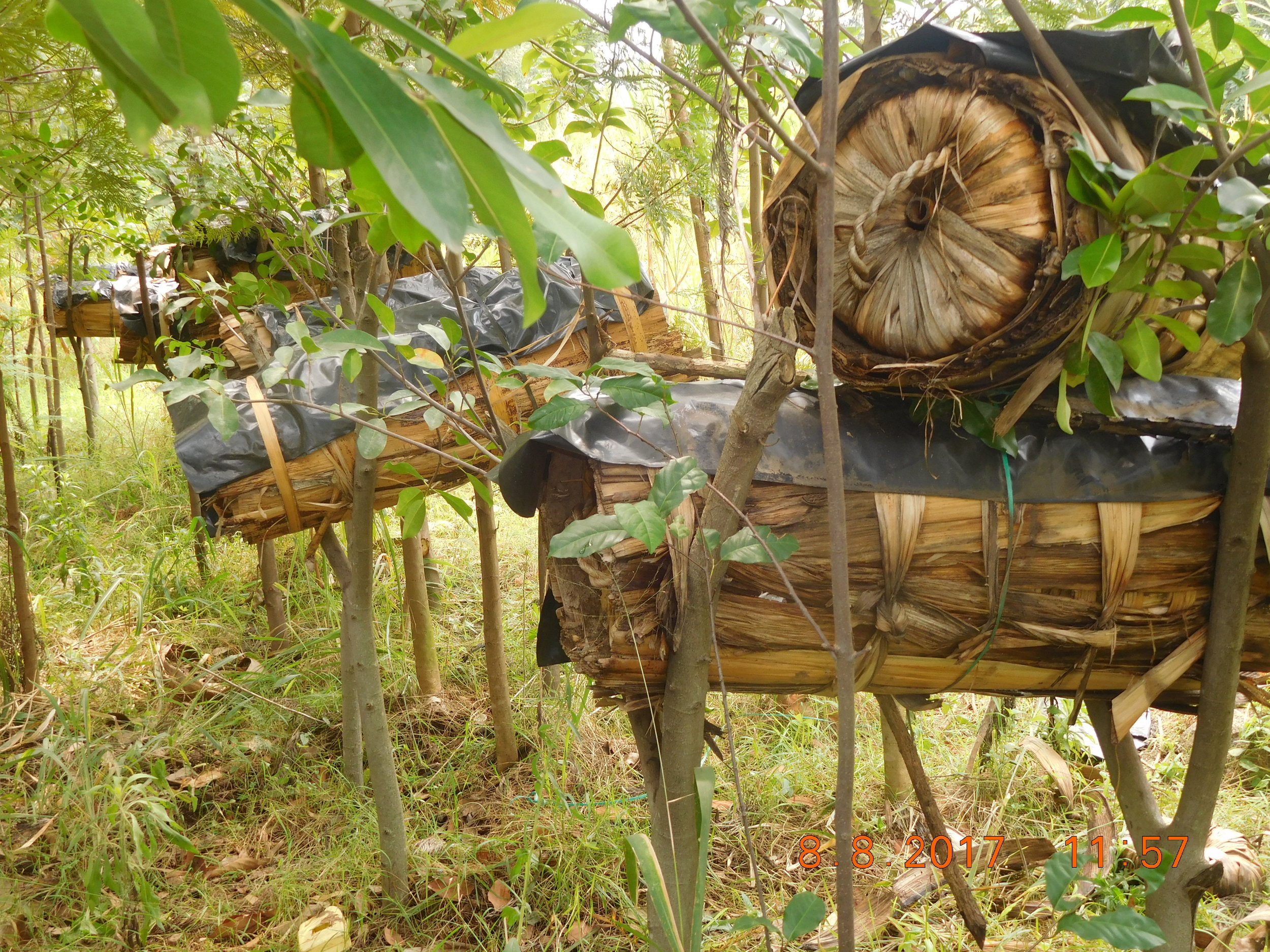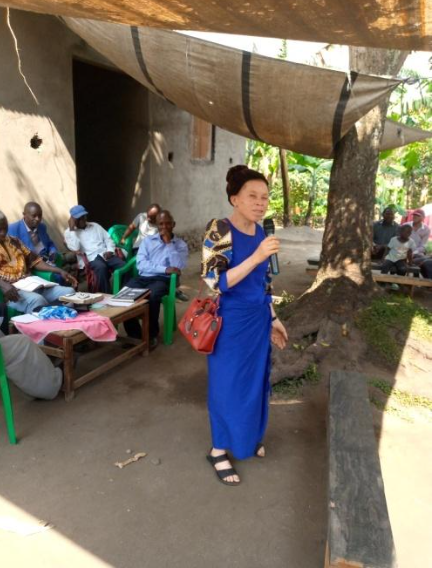The Black Bees Pollinators Project
Location: Kasese, Uganda
Background
Girls have been seen as a source of wealth for their families due to excessive poverty, ignorance and cultural beliefs. They have been deprived of their human rights including the right to an education and being allowed to marry a partner of their choice. There are several contributing factors to early child marriage: lack of funds to attend secondary education, lack of economic opportunity and bad actors who are responsible for girls being trafficked in search of employment and who then end up in dubious activities including prostitution.
Children born into this cycle end up becoming street children who do not benefit from a complete family structure. For those who do marry early most of them divorce due to complications during labor and the risks of fistula damage.
There exists an urgent need to reverse this trend to save the lives of girls who are suffering. Combined efforts from development workers both at local, national and international levels are needed to address these challenges.
This particular project will focus on dislodging some of the social, cultural and economic norms that have claimed the lives of so many girls. Lives can only be improved if more information is available to restore agency over their health, their bodies and their choices.
Economic empowerment is just one aspect of this whilst also attempting:
To increase effective community awareness on the rights of girls to combat stereotype, prejudices and harmful practices.
To demonstrate the resourcefulness of these girls to their parents, families and the community at large.
To promote the spirit of equal participation in decision making and encourage the concept of a rights-based approach to development.
Project Specifics
Why bees?
Beekeeping has the potential to radically affect people in the poorest, most isolated communities to achieve sustainable development.
After conducting research the young women of Kinyamaseke Girls Youth in Development (KYID) have based this project on the following:
Bees maintain biodiversity, by taking care of bees, the environment is more sustainable because bees not only pollinate crops but also other wild plants and trees, ensuring food for future generations.
This pollination improves crop yield providing higher profits for farmers.
Honey and beeswax are familiar products in every society, there is always a market
Bees products provide medicine: honey, beeswax and propolis are used and valued by traditional societies
Bee hives can be made from local materials - they can be low cost or no cost – allowing anyone to get started. Bees are usually freely available – we always advise to use local bees
Beekeeping can fit around a time table suitable for child-care or farming
Bees find their own food by foraging on flowering plants, wherever they are growing. Therefore, beekeeping is feasible for landless people
The products of bees: honey, beeswax, pollen and propolis can be used to make valuable secondary products like candles and shoe polish - this creates income generating possibilities for more people
Beekeeping allows income generation without destruction of forest or other natural habitats. Moreover, beekeeping provides a financial incentive to protect the habitat
Members of the organization and the community will acquire knowledge and skills on how to keep bees and how to conserve them. By educating the community on the need to preserve the natural environment they will learn of these fragile ecosystems so critical in the production of food. The loss of habitats, use of pesticide and the spread of disease is contributing to the decline in bee population.
The project will focus on an apiary located on a reserved piece of land. It will impart knowledge and skills to the KYID members and the community on how to address poor use of land, finding ways to improve sustainable agricultural practices for increased food production. This will include selective harvesting of the trees and vegetation, control of soil erosion and improvement in texture and conserving the wetlands which are currently threatened by the current expansion of agricultural activities and high rates of soil erosion due to deforestation.
Beneficiaries
The primary beneficiaries of the project are the girls of KYID. The secondary beneficiaries will be the community at large. Girls who are seen as being of less status in the community will prove to the community that through new technologies of conserving the bees for sustainable food production, they are implementing a new way of generating income and food production. Beneficiaries will be involved at all stages of implementation and evaluation.
Objectives
To conduct 3 project implementation planning meetings
To conduct 3 mobilization meetings by 3 board members of the organization.
To conduct 3 training workshops each of 30 members of the organization in beekeeping, honey processing and nursery bed rising.
To construct 20 stands and pillar with iron bars where bee hives can be laid
To procure 50 bee hives from the nearby workshop for trapping the bees.
To conduct 3 community seminars each of 40 people to create awareness about bees as pollinators and tree planting.
To conduct a 2 day study tour to Kamwenge where bees are well managed and honey processed.
To procure materials and equipment for honey processing
To conduct continuous monitoring and evaluation.
To develop and share reports about the project progress.
Capacity
Currently there are 20 local bee hives
3 members of the organization have had training in bee keeping and have experience in the field including processing the honey and wax into other products.
The district agriculture and veterinary officers will assist in setting up the project
KYID has 3 acres of land where they have planted trees to provide shade and flowers for the bees
They will be making candles from bee wax which will be mixed with Neem tree leaves to act as mosquito repellents as most of the people don’t have mosquito nets.











